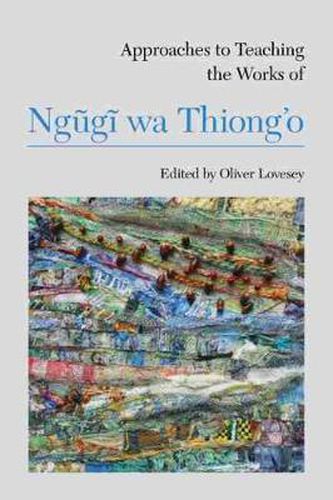Readings Newsletter
Become a Readings Member to make your shopping experience even easier.
Sign in or sign up for free!
You’re not far away from qualifying for FREE standard shipping within Australia
You’ve qualified for FREE standard shipping within Australia
The cart is loading…






Ngugi wa Thiong'o is one of the most important and celebrated authors of post-independence Africa as well as a ground breaking postcolonial theorist. His work, written first in English, then in Gikuyu, engages with the transformations of his native Kenya after what is often termed the Mau Mau rebellion. It also gives voice to the struggles of all Africans against economic injustice and political oppression. His writing and activism continue despite imprisonment, the threat of assassination, and exile.
Part 1 of this volume, Materials, provides resources and background for the teaching of Ngugi’s novels, plays, memoirs, and criticism. The essays of part 2, Approaches, consider the influence of Frantz Fanon, Karl Marx, and Joseph Conrad on Ngugi; the role of women in and influence of feminism on his fiction; his interpretation and political use of African history; his experimentation with orality and allegory in narrative; and the different challenges of teaching Ngugi in classrooms in the United States, Europe, and Africa.
$9.00 standard shipping within Australia
FREE standard shipping within Australia for orders over $100.00
Express & International shipping calculated at checkout
Ngugi wa Thiong'o is one of the most important and celebrated authors of post-independence Africa as well as a ground breaking postcolonial theorist. His work, written first in English, then in Gikuyu, engages with the transformations of his native Kenya after what is often termed the Mau Mau rebellion. It also gives voice to the struggles of all Africans against economic injustice and political oppression. His writing and activism continue despite imprisonment, the threat of assassination, and exile.
Part 1 of this volume, Materials, provides resources and background for the teaching of Ngugi’s novels, plays, memoirs, and criticism. The essays of part 2, Approaches, consider the influence of Frantz Fanon, Karl Marx, and Joseph Conrad on Ngugi; the role of women in and influence of feminism on his fiction; his interpretation and political use of African history; his experimentation with orality and allegory in narrative; and the different challenges of teaching Ngugi in classrooms in the United States, Europe, and Africa.